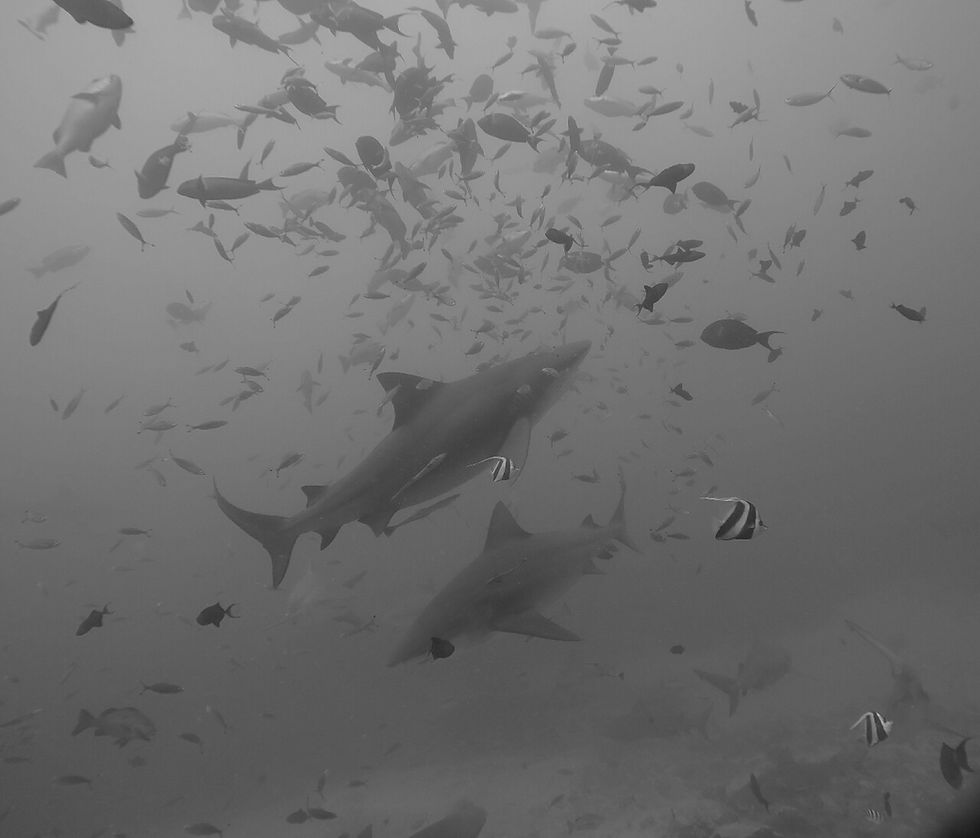Shark Conservation Internship, Fiji
- Lize Gibson-Hall

- Mar 15, 2021
- 4 min read
Updated: Feb 12, 2025
Travelling to Fiji at age eighteen I probably should have been more nervous, scratch that terrified. In all honesty, I could not wait to leave the nest and explore the world. As so many people experience, college was a difficult time and the chance to fly to the other side was a dream come true. I am completely aware as I am writing this how privileged I am to have been able to go on such a trip so early in my life. Despite having saved from working at a local café I know I could not have done this trip without the support of my family. However, I knew that this trip would not only develop my love for marine biology but also my confidence, something I have always struggled with.
So why Fiji?



Here I was set to embark on a two-month Shark Conservation Project with Projects Abroad back in 2016. After settling for a week in Nadi, I boarded a bus headed for Pacific Harbour near the capital of Suva. It did not take me long to settle in with volunteers from all backgrounds and the friendly and amusing project leaders and diving instructors.
What did I do?
The first week I completed my advanced open water diving in preparation for the scientific dives. I remember vividly going on my 30m deep dive and arriving at the bottom, only to have the instructor tap me on the shoulder and place his hand in a fin shape on top of his head. I knew immediately that it was a signal for a shark but was not in any way afraid. This area is an amazing Shark Reserve with diving from the Beqa Adventure Divers. The main shark in this area are bull sharks, with many known by name and identified by scratches and markings. Due to being so well fed and protected in the reserve, I turned around to see this huge bull shark swim past me without giving me a second thought. This was such a breathtaking experience, but we must always remember that we are in their homes and must treat them with respect.



The following weeks consisted of scientific dives where the goal was to identify fish species and the occasional shark, mainly white tip reef shark. There was also community projects, shark tagging, and mangrove planting as well as surveying the footage from the BRUVs (baited remote underwater videos) we deployed on each dive. However, the most anticipated event came in my third week, the monthly shark dive. Here we lined ourselves up on the ocean floor and waited whilst a huge wheelie bin was emptied above us, full of shark feed. After a few seconds of silence, we were confronted by around 20-30 bull sharks swimming right above our heads. It is truly a dive I will never forget. Another memorable dive was to the site rightfully named Barracuda. This dive ended up being the best visibility we had for weeks and ended with a huge school of barracuda passing right by us over the colourful reef.



Work and Research
In the world of paid volunteering, there are some circumstances where many wonder if they are actually making a difference or contributing to science. What makes this project stand out amongst others is not only the work they do with the local community and through their mangrove regrowth, but their contribution to scientific publications including a 2019 paper entitled: Essential waters: young bull sharks in Fiji’s largest riverine system. This work was part of the results from our tagging efforts of juvenile bull sharks in these important river systems, adding to the conservation awareness of these systems and highlighting a need to address fishing practices.
Lesson learned and no regrets

There was a lot to take away from this trip. From seeing sharks up close to being a part of traditional Fijian culture to jumping in the swimming pool fully clothed at 2am with the rest of the team. I met some amazing people on this trip and by the end was not only more confident but knew I wanted to undertake a degree in marine biology and continue to pursue my love for diving. I would recommend this trip to absolutely anyone no matter what age as long as they are fit for diving and have a passion for sharks and shark research. One of our diving instructors, Serena Stean , was especially motivating to me and made a point of showing me how far I had come with my diving as well as my confidence. She has gone onto work with the Indo Ocean Project, another amazing project filled with diving and research opportunities that is a must to check out.
On a final note, we must acknowledge the support and work from the local villages and communities (The Wainiyabia and The Galoa) who turned their waters from fishing to this beautiful shark reserve, established in 2004 and the first of its kind in Fiji. As of 2014 it is now Fiji's first national marine park! For more information on the creation of this marine park, the local villages involved and the amazing dive centre, Beqa Adventure Divers, please visit their website: http://fijisharkdive.com/conservation/shark-reef-marine-reserve/
References
Glaus, K., Brunnschweiler, J., Piovano, S., Mescam, G., Genter, F., Fluekiger, P., Rico, C., 2019. Essential waters: Young bull sharks in Fiji's largest riverine system. Ecology and Evolution, 9, 7574-7585
*Please note the shark teeth shown were found by me and the diving group on the ocean floor and had been naturally shed :)







Comments